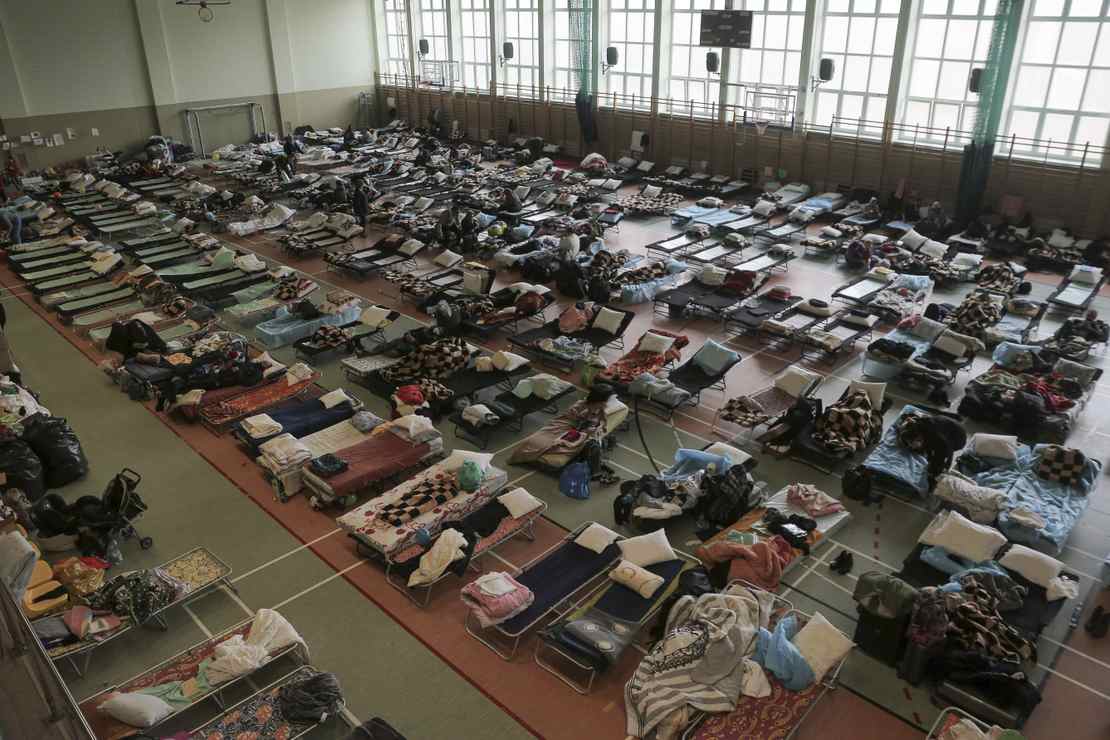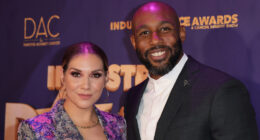
The United States has already taken in roughly 30,000 Ukrainian refugees and President Biden announced this week that we would be welcoming 100,000 more. Given the current level of global support for the people of Ukraine, as they remain under constant attack by Russia, it is perhaps understandable that western nations would be offering shelter to those driven from their homeland by the ongoing war. But in our rush to welcome all of these displaced individuals, America’s government may be opening itself up to charges of racial discrimination in our immigration policies. That uncomfortable point was made this week in an Associated Press interview with Wilfred Tebah, a refugee from the ongoing civil war in Cameroon. That central African nation has seen violence that is frequently every bit as bad as it is in Ukraine. Tebah now resides in Ohio, where he’s waiting for a hearing on his asylum request. He says he doesn’t begrudge the Ukrainians for the help they are receiving, but he questions whether or not America would have been so quick to throw open the doors if the refugees’ skin were several shades darker.
As the U.S. prepares to welcome tens of thousands of Ukrainians fleeing war, the country continues to deport scores of African and Caribbean refugees back to unstable and violent homelands where they’ve faced rape, torture, arbitrary arrest and other abuses.
“They do not care about a Black man,” the Columbus, Ohio, resident said, referring to U.S. politicians. “The difference is really clear. They know what is happening over there, and they have decided to close their eyes and ears.”
Tebah’s concerns echo protests against the swift expulsions of Haitian refugees crossing the border this summer without a chance to seek asylum, not to mention the frosty reception African and Middle Eastern refugees have faced in western Europe compared with how those nations have enthusiastically embraced displaced Ukrainians.
Before you start wondering if I recently suffered a blow to the head and woke up with an urge to join The Squad, don’t worry. I haven’t. And I am well aware of the tendency of most of the media and America’s progressives to cry racism at the drop of a hat. (Depending on the party affiliation of the target, of course.) But with all of that said, a reasonable person would have to admit that Mr. Tebah is making some substantial if uncomfortable points.
First of all, it’s simply a fact that Ukraine is a very white country in terms of racial demographics. I mean really white. You don’t need to look at the linked demographic data to know this. CNN does interviews with Ukrainians on an hourly basis and you could count on one hand the number of them who don’t look absolutely caucasian on any given day. Racial diversity has clearly never been a priority in that country and, before the war, there were frequent reports of racial unrest and violence.
READ RELATED: Biden: Our Iran-deal partner might just drop chemical weapons on Ukrainians, you know
There may be a few different explanations as to why the refugees from Ukraine are being treated so differently than those from Cameroon. For one thing, the media traditionally doesn’t tend to place as much focus on unrest in some of the poorer nations that the last president might have referred to as “s**thole countries” as they do for problems in more western and primarily European nations. The eyes of the world are locked on Ukraine right now, but I would wager that if you went out on the street today and asked a few dozen people, the vast majority of them couldn’t even point out Cameroon on a map, to say nothing of giving you any details of the civil war currently breaking the country apart.
Ukraine is clearly being treated differently, but should it be? We all know the current narrative by now. We’re witnessing an attack on a democratic nation by an evil, invading autocracy. And that’s technically true for the most part. But keep in mind that before Russia began massing troops on the border, Ukraine had more than its fair share of issues. The nation was widely viewed as being very corrupt, including by NATO leaders who looked at Ukraine’s hopes of joining the alliance with a jaundiced eye. And that corruption was hardly limited to just Hunter Biden’s sweetheart deals with Burisma. The country’s political structure wasn’t exactly stable, either. Before the global press converted Volodymyr Zelenski into some sort of European version of Tony Stark, he was busy trying to throw his main political opponent in jail.
As I see it, the reality is that the western world isn’t really so much defending the oppressed people of Ukraine as we are using that nation as leverage to push back against a possible re-establishment of the former Soviet Union. We’re not defending Zelinski and his people so much as we’re trying to head Putin off at the pass. But it makes us feel better about ourselves to treat this as a humanitarian crisis which means taking in refugees.
But are we being consistent? Tebah is correct when he reminds us that we turned back thousands of refugees from Haiti without giving it much of a second thought, and the conditions in that country are simply abysmal. And nobody has suggested printing up 100,000 visas for people fleeing Cameroon. Nor for people from Yemen or Syria, for that matter. I have supported these cautious approaches toward migrants coming from anywhere in the past, as I know many of our readers have also. While many people need and probably deserve relief, we have to be able to vet these people and ensure that we don’t have seriously bad actors sneaking in with those sincerely hoping to find relief and opportunity legally in America.
So are we going to be focusing the same level of scrutiny on the 100,000 Ukrainians about to drop into our laps? The idea that there could be Russian moles or even terrorists mixing in with that crowd is not as far-fetched as you might think. If we’re going to throw out the rule book and simply assume that every Ukrainian refugee has to be “one of the good guys,” someone will need to be held accountable for that decision and any potential downstream damage that comes of it.
Source:






